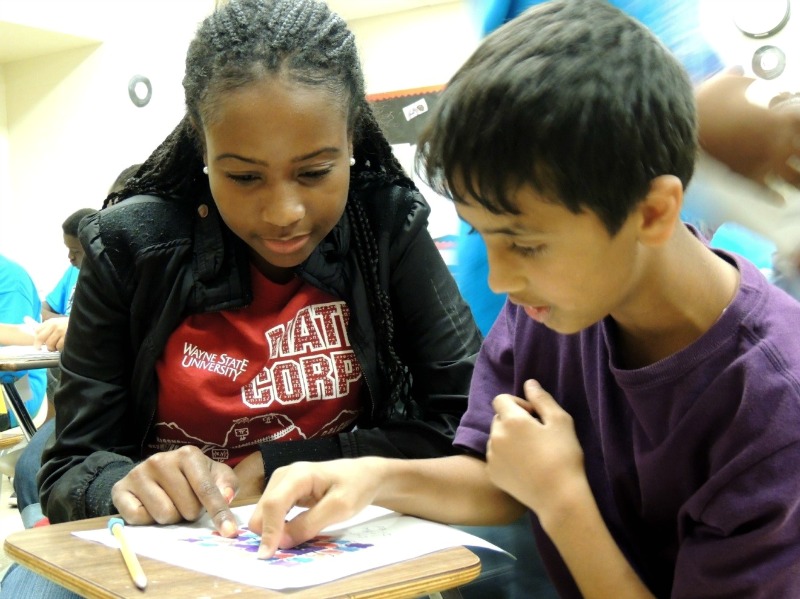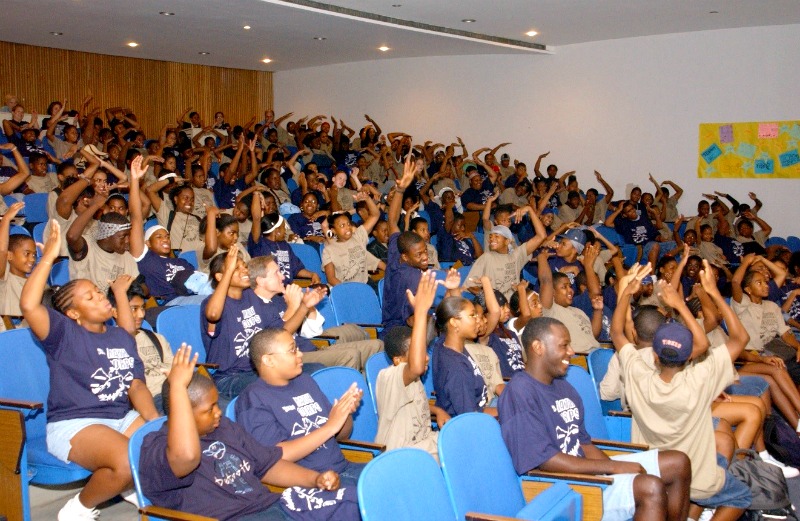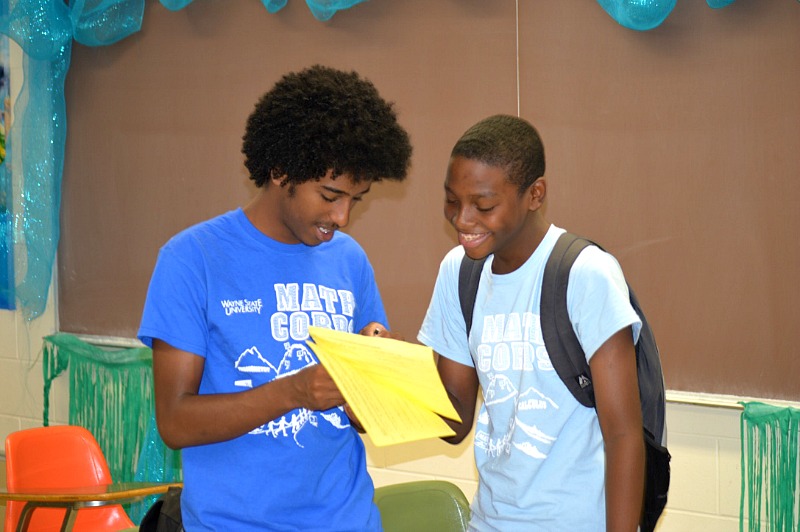
Wayne State University’s Math Corps recently received a nearly $3 million grant from the National Science Foundation (NSF) to develop and study the replication of its award-winning mathematics enrichment and mentoring program, which operates during summers and on Saturdays.
Through rigorous research and evaluation, the NSF grant project will analyze and understand the nature, extent and reasons for Math Corps' success with youth learning in Detroit as well as the processes of replicating the program in three sites — Cleveland; Utica, New York; and Philadelphia.
“This award will position us for a national expansion,” said Steve Kahn, co-founder of Math Corps, director of the WSU Center for Excellence and Equity in Mathematics, and principal investigator for the NSF project. “This grant will help us research and understand where the power of the Math Corps comes from. We will document the philosophies, principles and practices in a way that can be easily shared with people across the country, whether it be programs or schools.”
The project will run the next four years and is expected to deepen understandings of program replication and addressing the needs of youth in economically challenged communities in order to promote mathematics learning. It is funded by the Advancing Informal Science, Technology, Engineering and Mathematics (STEM) Learning program, which seeks to advance new approaches to, and evidence-based understandings of, the design and development of STEM learning in informal environments.
 Stephen Chrisomalis, associate professor and graduate director in Wayne State’s Department of Anthropology in the College of Liberal Arts and Sciences, is one of the project’s co-principal investigators. He has been involved in doing research on Math Corps since 2008 and has written two previous articles about the program.
Stephen Chrisomalis, associate professor and graduate director in Wayne State’s Department of Anthropology in the College of Liberal Arts and Sciences, is one of the project’s co-principal investigators. He has been involved in doing research on Math Corps since 2008 and has written two previous articles about the program.
“When Steve (Kahn) approached me last year to be involved in this new NSF-funded proposal on informal mathematics learning, of course I said yes,” Chrisomalis said. “Having previous, internally funded social science research on the program was certainly a big boost to the present grant's chances at NSF.”
Over the next four years, Chrisomalis will help conduct anthropological and linguistic research — including surveys, audio recordings, student journals and interviews — with staff and students at the original Math Corps in Detroit and three new sites.
 “Taking an existing program to new places with new staff is never simple, and that's especially true with something as complex as the Math Corps,” Chrisomalis said. “My role is to use social-scientific methods from anthropology and linguistics to determine how best to replicate the whole suite of practices that comprise the Math Corps.”
“Taking an existing program to new places with new staff is never simple, and that's especially true with something as complex as the Math Corps,” Chrisomalis said. “My role is to use social-scientific methods from anthropology and linguistics to determine how best to replicate the whole suite of practices that comprise the Math Corps.”
Research methods include discourse analyses, surveys, interviews and pre/post-tests. The project will also conduct a retrospective evaluation of Math Corps based on quantitative datasets regarding both near-term and long-term youth outcomes. The curriculum and the pedagogies in Math Corps’ informal learning program have documented success of supporting youths' mathematics learning as well as raising achievement levels in school.
“Because Math Corps is not just a curriculum but also a social system with distinct values and practices, understanding the ways that the principles, philosophies and practices relate to the way math is taught is extremely important,” Chrisomalis said. “People at Math Corps sometimes talk about a ‘Math Corps way’ of doing math, but also a ‘Math Corps way’ of treating people with compassion and integrity.”
The award number for this NSF grant is 1612400.
